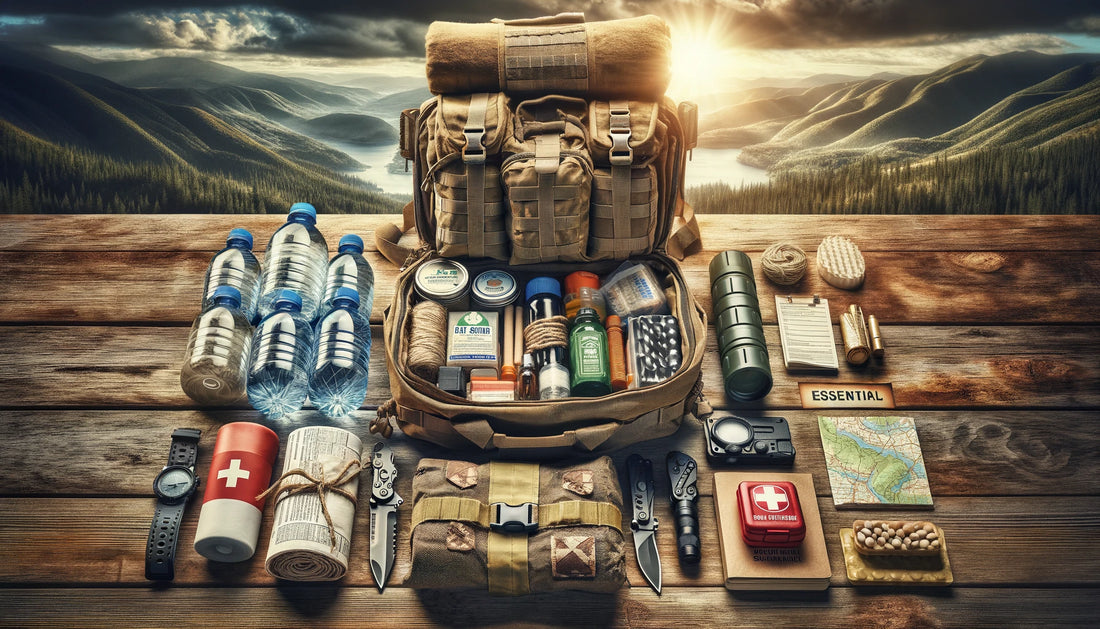Why You Need a Bug Out Bag
The primary purpose of a Bug Out Bag is to allow you to evacuate quickly with essential resources to survive, should staying in your current location prove dangerous or impossible. Scenarios where a BOB becomes indispensable include natural disasters like hurricanes, floods, earthquakes, or man-made crises like power outages or chemical spills. Having a BOB ready ensures that you’re prepared to leave at a moment's notice, with essentials for survival at hand.
Key Components of a Bug Out Bag
A well-prepared BOB should be tailored to the individual and climate, but there are universal essentials that every bag should contain:
- Water and Hydration: Water is your most critical need in survival. Include a minimum of one liter of water per person per day, a portable water filter, and water purification tablets to ensure you can drink safely from natural sources.
- Food: Pack non-perishable, high-energy foods such as energy bars, dried fruits, nuts, and ready-to-eat meals that require minimal preparation.
- Shelter and Warmth: Items like a lightweight tent or emergency bivy sack, a sleeping bag, and an all-weather blanket can protect you from the elements.
- Clothing: Pack a change of clothes appropriate for the climate and sturdy footwear. Include rain gear and thermal underwear for colder climates.
- First Aid Kit: A comprehensive first aid kit should include items to treat minor injuries and common ailments. Consider adding prescription medications if needed.
- Tools and Equipment: A multi-tool, knife, flashlight with extra batteries, matches or a lighter, and a portable stove can be invaluable in a survival situation.
- Communication and Navigation: A battery-powered or hand-crank radio to receive emergency broadcasts, a whistle to signal for help, and maps of your local area with a compass or GPS device.
- Personal Documents and Cash: Keep copies of important documents (ID, passport, insurance policies) in a waterproof container, along with some cash in small denominations.
- Hygiene Items: Include basic hygiene products like toothbrush, toothpaste, soap, hand sanitizer, and toilet paper.
- Miscellaneous: Depending on your needs, consider adding items such as sunglasses, insect repellent, sunscreen, and a hat for sun protection.
Tailoring Your Bug Out Bag
While the above list covers the basics, it’s important to customize your BOB based on personal needs, the size of your group (including pets), and any specific medical requirements. Remember, the goal is not just to survive but to do so with a degree of comfort and safety.
Conclusion
The Bug Out Bag is not a one-size-fits-all solution but a personalized kit that reflects your preparedness strategy. Investing the time to assemble and maintain a BOB can significantly impact your resilience in the face of emergencies. Start building your Bug Out Bag today; it’s better to have it and not need it than to need it and not have it. Preparedness begins with action—ensure you and your loved ones are ready for whatever comes your way.

